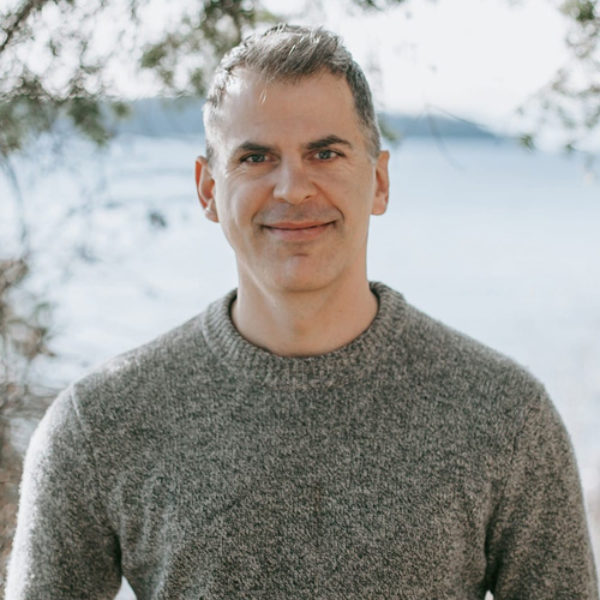The communicative loop of listening and speaking forms a powerful karmic workshop. Language taps into our karmic archive, sankhara. It reaches other people and, if they are listening, there is mind-to-mind contact. Relational contact is intrinsically powerful because humans are intrinsically relational: when we engage together, our mutual responsiveness amplifies our efforts. Speaking and listening together empowers us to do good works, or drives us towards anger and fear. Sila. It empowers our development of mindfulness and calm concentration, or it is a channel for distraction. Samadhi. It carries wisdom and deep inquiry or driveling trivia. Panna. All of these are enfolded in meditation in which the doorway to speech is opened.
With Gregory Kramer recorded on February 11, 2018.
Found our teachings useful? Help us continue our work and support your teachers with a donation. Here’s how.
Discover more from the Dharma Library
-

Acting on Behalf of Consciousness
Recorded :
January 10, 2021 As we move into this new year, most of us are ready to leave 2020 behind. So much hardship, for so many, has arisen in the last year. Many of us felt more isolated, more separate, than ever before. As we transition into 2021, rather than live and act on behalf of that felt sense…
-

You are Not Alone: Healing the Myth of Separation
Recorded :
March 17, 2019 The dharma invites us to face ourselves fully. But through fear, we sometimes distract ourselves, over-fill ourselves, and hold onto external attachments, in order to avoid.…what? The illusion that we are separate and isolated manifests in ways conscious and unconscious, but over time practice reveals to us that it is simply the ego that fears…
-

Touching the Earth: Turning the Mind to the Roots
Recorded :
April 10, 2022 During this session we discuss the teaching on ‘wisely directing one’s attention to the roots’ (yoniso manasikāra). It is a remarkably pragmatic approach to contemplative practice and one of Early Buddhism’s unique contributions to the human emancipatory effort from suffering.
-

Daily Meditation Recordings, with Caverly Morgan – Week of May 11
We’re very grateful to have Caverly Morgan hosting our Daily Meditation Series for North America. To find out more about Caverly, and to view her past recordings and contributions to Sangha Live, click here. Monday, May 11 Noticing the space between the thoughts Wednesday, May 13 What’s left when things fall apart? Friday, May 15…
-

Befriending the emotions.
Recorded :
October 16, 2016 So often we struggle because we’re resisting, fixing, changing, or even “transcending” our experiences. What shifts when instead of pushing our emotions away, we invite them closer in? What changes when we learn to relate to our emotions like a welcoming friend? And, what changes when we are able to access the place in which…
-

Natural Wisdom
Recorded :
July 5, 2020 In the modern world, it’s easy to forget our intimate connection with all of life. But with recent global events and movements, we’ve been both confronted and inspired by the deep impact our actions have on one another. From a Buddhist perspective, being aware is our true nature. What role might the natural world play…
-

Daily Meditation Recordings, with Miles Kessler – Week of 28 October, 2024
We’re grateful to have Miles Kessler leading our Daily Meditation sessions this week. May they support and enrich your practice.
This week’s theme is: Practicing Insight In Daily Life
The practice of mindfulness meditation automatically triggers off a series of developmental insights that gradually develop over time. But how do these “insights” appear in your daily life? In this week of daily meditation practice, Miles Kessler will lead you through an exploration of how the path of insight meditation unfolds on the cushion, but also in your daily life. Join Miles in this week of daily meditations and integrating the “Practicing Insight In Daily Life”.
-

Liberation Now: From the Progressive Path to Direct Experience
Recorded :
December 1, 2019 In a progressive path approach to practice, we sometimes fall for the idea that liberation is in the future. We are conditioned to believe that we must end thinking, master practices, meditate for years, and purify our minds. Without realizing it, our beliefs can maintain the conditioning that stands in the way of our direct…





Discussion